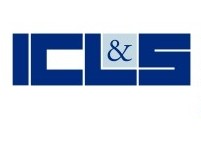Eighth Annual Symposium of the Consortium for Asian and African Studies (CAAS) BEYOND THE NATION? The Transnational and its Limits
Eighth Annual Symposium of the Consortium for Asian and African Studies (CAAS) BEYOND THE NATION? The Transnational and its Limits. Leiden University, October 21st and 22nd, 2017 .With assistance from the International Institute for Asian Studies and the Leiden Asia Centre. CALL FOR PAPERS:
In the period since the 1980s, as the tensions of the Cold War cooled and were superseded by idealistic visions of a globalized “world without boundaries”—in a context of increasing liberalization and expansion of cross-border flows of human, economic, and intellectual capital—scholarship in the liberal arts and social sciences has moved increasingly towards a questioning of the nation and the nation-state as the dominant frame and determinant of history, identity, politics, economics, culture, and social life. Across the academic disciplines, attention has turned to the transnational, the regional and the global, focusing on cross-border flows and dynamics that go “beyond the nation.” The effort has yielded considerable breakthroughs in terms of broadened and redefined academic understandings with regard to issues such as Eurocentrism, processes of social inclusion and exclusion, nation- and empirebuilding, along with more general notions of society, culture and identity formation, with impacts both intellectual and political.
Yet even as the questioning and transcendence of the claims of the nation-state might be the trend in many (if not all) of the humanities and social sciences, consciously or unconsciously, in political, economic, social, cultural and institutional life, the nation-state and “the national interest” remain in many ways very much at the center of things, both defining and constraining the terms upon which we engage the world beyond. In much of the global South, the liberalization and expansion of cross-border capital flows and the growing power of international institutions has not necessarily led to a strengthening of political or ideological trends in favor of a rejection of the claims of the nation state; in places such as India, aggressive nationalism appears to be making a resurgence. Meanwhile in the global “North,” as symbolized by last year’s Brexit and the election of Donald Trump, unprecedented transnational and global interconnection and interdependence appear to have paradoxically contributed to an unheralded return of nationalist sentiments, above all in many parts of the global “North” that were, until recently, the loudest champions of a borderless world. The transnational and the national thus remain inextricably intertwined, and mutually implicated. Driven by such apparent paradoxes, the general theme of this year’s conference is a critical interrogation of the transnational and its limits.
Across the humanities and the social sciences (as well as the wider world), how and why has the transnational been understood, imagined and pursued—and how and why might this done in the future? Within a historical as well as contemporary world still largely bound by the institutions and interests of the nation-state, to what extent can the nation be transcended—and to what extent is this desirable? Graduate students and faculty of the eight CAAS member universities (Leiden, INALCO, SOAS, NUS, HUFS, Columbia, TUFS, and our newest member, Shanghai International Studies University) are invited to submit proposals for papers dealing with these and related questions with regard to Asia, Africa, and their (interrelated) histories and presents. All disciplines of Area Studies are welcome, including literature, history, linguistics, sociology, anthropology, political economy, religious studies, migrant studies, as well as multi- and interdisciplinary approaches that combine them.
Papers will be selected based on content and approach. The papers will be grouped by themes into panels, which will be conducted as workshops, with 15-minute presentations by speakers, and as much discussion as possible among participants and audience. The organizers can also accept panel proposals with three or four presentations. Each panel must contain at least one CAAS presenter, but it can include non-CAAS presenters as well. Papers should be submitted to the organizers by September 20th and will be made available to symposium participants. English is the language of the Symposium, and as in the past seven CAAS Symposia we especially welcome applications from graduate students and post-docs as well as from faculty members.
Application procedures: For individual applications, Applicants should send 1) a one-page proposal describing the topic and approach of the paper, and 2) a brief curriculum vitae of one page maximum For panel proposals, Applicants should send 1) a one-page proposal of the panel, 2) a one-page proposals and curriculum vitae from each presenter Proposals should be combined into a single PDF document, which should be sent as an e-mail attachment to iias@iias.nl, with reference to the CAAS symposium. The deadline for submission is May 31st, 2017.
Applicants will be notified of their selection by July 1st, 2017. As in earlier CAAS Symposia, travel and accommodation expenses will not be covered by the host institution. For further information or questions about the Symposium, please contact the Leiden University CAAS coordinator Dr. Ethan Mark at e.mark@hum.leidenuniv.nl
Two notes to applicants: 1) European and Asian members of the consortium include what we call the Middle East in their definition of Asian and African studies; and 2) While there is no established university funding for travel, in past years nearly all the students managed to get financial support from a combination of their departments, institutes, and/or schools.
We hope that Columbia will again be a lively presence at this ever more successful international Symposium.
Please let Katherine Forshay (kdf2116@columbia.edu) or Carol Gluck (cg9@columbia.edu) know if you have any questions.









